Editor’s Note: This is the ninth chapter of Romulus, by Jacob Abbott (published 1902).
IX. The Founding of Rome
As soon as the excitement and the agitations which attended the sudden revolution by which Amulius was dethroned were in some measure calmed, and tranquility was restored, the question of the mode in which the new government should be settled, arose. Numitor considered it best that he should call an assembly of the people and lay the subject before them. There was a very large portion of the populace who yet knew nothing certain in respect to the causes of the extraordinary events that had occurred. The city was filled with strange rumors, in all of which truth and falsehood were inextricably mingled, so that they increased rather than allayed the general curiosity and wonder.
Numitor accordingly convened a general assembly of the inhabitants of Alba, in a public square. The rude and rustic mountaineers and peasants whom Romulus had brought to the city came with the rest. Romulus and Remus themselves did not at first appear. Numitor, when the audience was assembled, came forward to address them. He gave them a recital of all the events connected with the usurpation of Amulius. He told them of the original division which had been made thirty or forty years before, of the kingdom and the estates of his father, between Amulius and himself,—of the plans and intrigues by which Amulius had contrived to possess himself of the kingdom and reduce him, Numitor, into subjection to his sway,—of his causing Egestus, Numitor’s son, to be slain in the hunting party, and then compelling his little daughter Rhea to become a vestal virgin in order that she might never be married. He then went on to describe the birth of Romulus and Remus, the anger of Amulius when informed of the event, his cruel treatment of the children and of the mother, and his orders that the babes should be drowned in the Tiber. He gave an account of the manner in which the infants had been put into the little wooden ark, of their floating down the stream, and finally landing on the bank, and of their being rescued, protected and fed, by the wolf and the woodpecker. He closed his speech by saying that the young princes were still alive, and that they were then at hand ready to present themselves before the assembly.
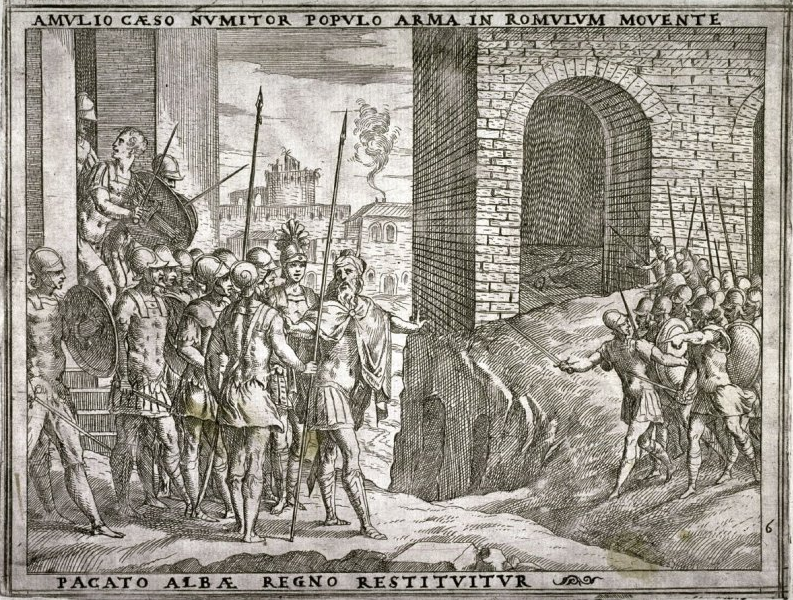
As he said these words, Romulus and Remus came forward, and the vast assembly, after gazing for a moment in silent wonder upon their tall and graceful forms, in which they saw combined athletic strength and vigor with manly beauty, they burst into long and loud acclamations. As soon as the applause had in some measure subsided, Romulus and Remus turned to their grandfather and hailed him king. The people responded to this announcement with new plaudits, and Numitor was universally recognized as the rightful sovereign.
It seems that notwithstanding the personal graces and accomplishments of Romulus and Remus, and their popularity among their fellow foresters, that they and their followers made a somewhat rude and wild appearance in the city, and Numitor was very willing, when the state of things had become somewhat settled, that his rustic auxiliaries should find some occasion for withdrawing from the capital and returning again to their own native fastnesses. Romulus and Remus, however, having now learned that they were entitled to the regal name, naturally felt desirous of possessing a little regal power, and thus desired to remain in the city; while still they had too much consideration for their grandfather to wish to deprive him of the government. After some deliberation a plan was devised which promised to gratify the wishes of all.
The plan was this, namely, that Numitor should set apart a place in his kingdom of Latium where Romulus and Remus might build a city for themselves,—taking with them to the spot the whole horde of their retainers. The place which he designated for this purpose was the spot on the banks of the Tiber where the two children had been landed when floating down the stream. It was a wild and romantic region, and the enterprise of building a city upon it was one exactly suited to engage the attention and occupy the powers of such restless spirits as those who had collected under the young princes’ standard. Many of these men, it is true, were shepherds and herdsmen, well disposed in mind, though rude and rough in manners. But then there were many others of a very turbulent and unmanageable character, outlaws, fugitives, and adventurers of every description, who had fled to the woods to escape punishment for former crimes, or seek opportunities for the commission of new deeds of rapine and robbery; and who had seized upon the occasion furnished by the insurrection against Amulius to come forth into the world again. Criminals always flock into armies when armies are raised; for war presents to the wicked and depraved all the charms, with but half the danger, of a life of crime. War is in fact ordinarily only a legal organization of crime.
Romulus and Remus entered into their grandfather’s plan with great readiness. Numitor promised to aid them in their enterprise by every means in his power. He was to furnish tools and implements, for excavations and building, and artisans so far as artisans were required, and was also to provide such temporary supplies of provisions and stores as might be required at the outset of the undertaking. He gave permission also to any of his subjects to join Romulus and Remus in their undertaking, and they, in order to increase their numbers as much as possible, sent messengers around to the neighboring country inviting all who were disposed, to come and take part in the building of the new city. This invitation was accepted by great numbers of people, from every rank and station in life.
Of course, however, the greater portion of those who came to join the enterprise, were of a very low grade in respect to moral character. Men of industry, integrity, and moral worth, who possessed kind hearts and warm domestic affections, were generally well and prosperously settled each in his own hamlet or town, and were little inclined to break away from the ties which bound them to friends and society, in order to plunge in such a scene of turmoil and confusion as the building of a new city, under such circumstances, must necessarily be. It was of course generally the discontented, the idle, and the bad, that would hope for benefit from such a change as this enterprise proposed to them. Every restless and desperate spirit, every depraved victim of vice, every fugitive and outlaw would be ready to embark in such a scheme, which was to create certainly a new phase in their relations to society, and thus afford them an opportunity to make a fresh beginning. The enterprise at the same time seemed to offer them, through a new organization and new laws, some prospect of release from responsibility for former crimes. In a word, in preparing to lay the foundations of their city, Romulus and Remus found themselves at the head of a very wild and lawless company.
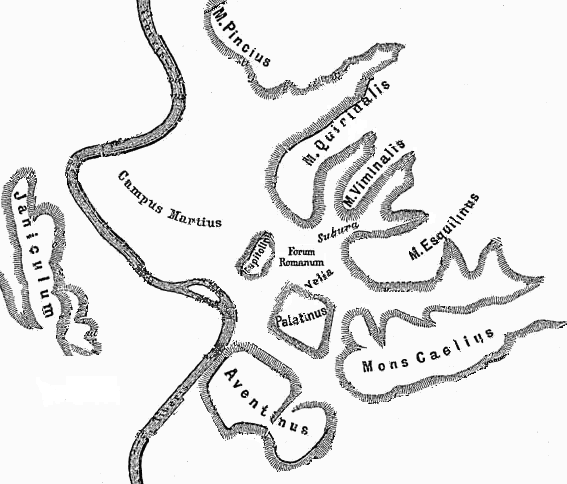
There were seven distinct hills on the ground which was subsequently included within the limits of Rome. Between and among these hills the river meandered by sweeping and graceful curves, and at one point, near the center of what is now the city, the stream passed very near the foot of one of the elevations called the Palatine Hill. Here was the spot where the wooden ark in which Romulus and Remus had been set adrift, had been thrown up upon the shore. The sides of the hill were steep, and between it and the river there was in one part a deep morass. Romulus thought, on surveying the ground with Remus his brother, that this was the best spot for building the city. They could set apart a sufficient space of level ground around the foot of the hill for the houses—enclosing the whole with a wall—while the top of the hill itself might be fortified to form the citadel. The wall and the steep acclivity of the ground would form a protection on three sides of the enclosure, while the morass alone would be a sufficient defense on the part toward the river. Then Romulus was specially desirous to select this spot as the site, as it was here that he and his brother had been saved from destruction in so wonderful a manner.
Remus, however, did not concur in these views. A little farther down the stream there was another elevation called the Aventine Hill which seemed to him more suitable for the site of a town. The sides were less precipitous, and thus were more convenient for building ground. Then the land in the immediate vicinity was better adapted to the purposes which they had in view. In a word, the Aventine Hill was, as Remus thought, for every substantial reason, much the best locality; and as for the fact of their having been washed ashore at the foot of the other hill, it was in his opinion an insignificant circumstance, wholly unworthy of being taken seriously into the account in laying the foundation of a city.
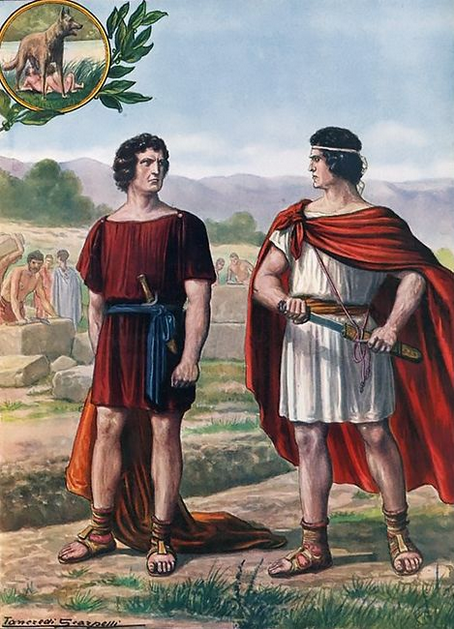
The positions in which Remus and Romulus stood in respect to each other, and the feelings which were naturally awakened in their hearts by the circumstances in which they found themselves placed, were such as did not tend to allay any rising asperity which accident might occasion, but rather to irritate and inflame it. In the first place, they were both ardent, impulsive, and imperious. Each was conscious of his strength, and eager to exercise it. Each wished to command, and was wholly unwilling to obey. While they were in adversity, they clung together for mutual help and protection; but now, when they had come into the enjoyment of prosperity and power, the bands of affection which had bound them together were very much weakened, and were finally sundered. Then there was nothing whatever to mark any superiority of one over the other. If they had been of different ages, the younger could have yielded to the elder, in some degree, without wounding his pride. If one had been more prominent than the other in effecting the revolution by which Amulius was dethroned, or if there had been a native difference of temperament or character to mark a distinction, or if either had been designated by Numitor, or selected by popular choice, for the command,—all might have been well. But there seemed in fact to be between them no grounds of distinction whatever. They were twins, so that neither could claim any advantage of birthright. They were equal in size, strength, activity, and courage. They had been equally bold and efficient in effecting the revolution; and now they seemed equally powerful in respect to the influence which they wielded over the minds of their followers. We have been so long accustomed to consider Romulus the more distinguished personage, through the associations connected with his name, that have arisen from his subsequent career, that it is difficult for us to place him and his brother on that footing of perfect equality which they occupied in the estimation of all who knew them in this part of their history. This equality had caused no difference between them thus far, but now, since the advent of power and prosperity prevented their continuing longer on a level, there necessarily came up for decision the terrible question,—terrible when two such spirits as theirs have it to decide,—which was to yield the palm.
The brothers, therefore, having each expressed his preference in respect to the best place for the city, were equally unwilling to recede from the ground which they had taken. Remus thought that there was no reason why he should yield to Romulus, and Romulus was equally unwilling to give way to Remus. Neither could yield, in fact, without in some sense admitting the superiority of the other. The respective partisans of the two leaders began to take sides, and the dissension threatened to become a serious quarrel. Finally, being not yet quite ready for an open rupture, they concluded to refer the question to Numitor, and to abide by his decision. They expected that he would come and view the ground, and so decide where it was best that the city should be built, and thus terminate the controversy.
But Numitor was too sagacious to hazard the responsibility of deciding between two such equally matched and powerful opponents. He endeavored to soothe and quiet the excited feelings of his grandsons, and finally recommended to them to appeal to augury to decide the question. Augury was a mode of ascertaining the divine will in respect to questions of expediency or duty, by means of certain prognostications and signs. These omens were of various kinds, but perhaps the most common were the appearances observed in watching the flight of birds through the air.
It was agreed between Remus and Romulus, in accordance with the advice of Numitor, that the question at issue between them should be decided in this way. They were to take their stations on the two hills respectively—the Palatine and the Aventine, and watch for vultures. The homes of the vultures of Italy were among the summits of the Appenines, and their function in the complicated economy of animal life, was to watch from the lofty peaks of the mountains, or from the still more aërial and commanding positions which they found in soaring at vast elevations in the air, for the bodies of the dead,—whether of men after a battle, or of sheep, or cattle, or wild beasts of the forests, killed by accident or dying of age,—and when found to remove and devour them; and thus to hasten the return of the lifeless elements to other forms of animal and vegetable life. What the earth, and the rite of burial, effects for man in advanced and cultivated stages of society, the vultures of the Appenines were commissioned to perform for all the animal communities of Italy, in Numitor’s time.
To enable the vulture to accomplish the work assigned him, he is endowed with an inconceivable strength of wing, to sustain his flight over the vast distances which he has to traverse, and up to the vast elevations to which he must sometimes soar; and also with some mysterious and extraordinary sense, whether of sight or smell, to enable him readily to find, at any hour, the spot where his presence is required, however remote or however hidden it may be. Guided by this instinct, he flies from time to time with a company of his fellows, from mountain to mountain, or wheels slowly in vast circles over the plains—surveying the whole surface of the ground, and assuredly finding his work;—finding it too equally easily, whether it lie exposed in the open field, or is hidden, no matter how secretly, in forest, thicket, grove or glen.
It was, to certain appearances, indicated in the flight of these birds—such as the number that were seen at a time, the quarter of the heavens in which they appeared, the direction in which they flew, as from left to right or from right to left—that the people of Numitor’s day were accustomed to look for omens and auguries. So Romulus and Remus took their stations on the hills which they had severally chosen, each surrounded by a company of his own adherents and friends, and began to watch the skies. It was agreed that the decision of the question between the two hills should be determined by the omens which should appear to the respective observers stationed upon them.
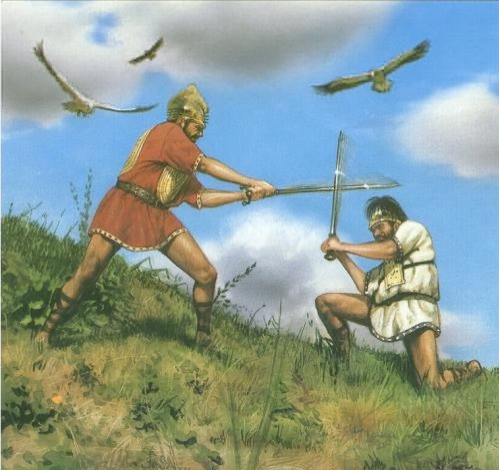
But it happened, unfortunately, that the rules for the interpretation of auguries and omens, were far too indefinite and vague to answer the purpose for which they were now appealed to. The most unequivocal distinctness and directness in giving its responses is a very essential requisite in any tribunal that is called upon as an umpire, to settle disputes; while the ancient auguries and oracles were always susceptible of a great variety of interpretations. When Remus and Romulus commenced their watch no vultures were to be seen from either hill. They waited till evening, still none appeared. They continued to watch through the night. In the morning a messenger came over from the Palatine hill to Remus on the Aventine, informing him that vultures had appeared to Romulus. Remus did not believe it. At last, however, the birds really came into view; a flock of six were seen by Remus, and afterward one of twelve by Romulus. The observations were then suspended, and the parties came together to confer in respect to the result; but the dispute instead of being settled, was found to be in a worse condition than ever. The point now to be determined was whether six vultures seen first, or twelve seen afterward, were the better omen, that is whether numbers, or simple priority of appearance, should decide the question. In contending in respect to this nice point the brothers became more angry with each other than ever. Their respective partisans took sides in the contest, which resulted finally in an open and violent collision. Romulus and Remus themselves seem to have commenced the affray by attacking one another. Faustulus, their foster-father, who, from having had the care of them from their earliest infancy, felt for them an almost parental affection, rushed between them to prevent them from shedding each other’s blood. He was struck down and killed on the spot, by some unknown hand. A brother of Faustulus too, named Plistinus, who had lived near to him, and had known the boys from their infancy, and had often assisted in taking care of them, was killed in the endeavor to aid his brother to appease the tumult.
At length the disturbance was quelled. The result of the conflict was, however, to show that Romulus and his party were the strongest. Romulus accordingly went on to build the walls of the city at the spot which he had first chosen. The lines were marked out, and the excavations were commenced with great ceremony.
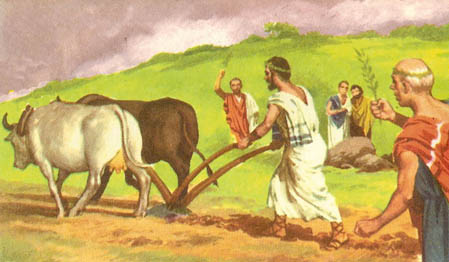
In laying out the work, the first thing to be done was to draw the lines of what was called the pomœrium. The pomœrium was a sort of symbolical wall, and was formed simply by turning a furrow with a plow all around the city, at a considerable distance from the real walls, for the purpose, not of establishing lines of defense, but of marking out what were to be the limits of the corporation, so to speak, for legal and ceremonial purposes. Of course, the pomœrium included a much greater space than the real walls, and the people were allowed to build houses anywhere within this outer enclosure, or even without it, though not very near to it. Those who built thus were, of course, not protected in case of an attack and of course they would, in such case, be compelled to abandon their houses, and retreat for safety within the proper walls.
So Romulus proceeded to mark out the pomœrium of the city, employing in the work the ceremonies customary on such occasions. The plow used was made of copper, and for a team to draw it a bullock and a heifer were yoked together. Men appointed for the purpose followed the plow, and carefully turned over the clods toward the wall of the city. This seems to have been considered an essential part of the ceremony. At the places where roads were to pass in toward the gates of the city, the plow was lifted out of the ground and carried over the requisite space, so as to leave the turf at those points unbroken. This was a necessary precaution; for there was a certain consecrating influence that was exerted by this ceremonial plowing which hallowed the ground wherever it passed in a manner that would very seriously interfere with its usefulness as a public road.
The form of the space enclosed by the pomœrium, as Romulus plowed it, was nearly square, and it included not merely the Palatine hill itself, but a considerable portion of level land around it.
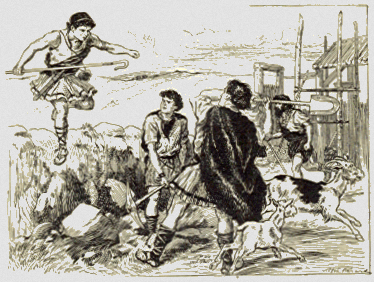
Though Romulus thus seemed to have conquered, in the strife with Remus, the difficulty was not yet fully settled. Remus was very little disposed to acquiesce in his brother’s assumed superiority over him. He was sullen, morose, and ill at ease, and was inclined to take little part in the proceedings which were going on. Finally an occasion occurred which produced a crisis, and brought the rivalry and enmity of the brothers suddenly and forever to an end. Remus was one day standing by a part of the wall which his brother’s workmen were building, and expressing, in various ways, and with great freedom, his opinions of his brother’s plans; and finally he began to speak contemptuously of the wall which the workmen were building. Romulus all the time was standing by. At length, in order to enforce what he said about the insufficiency of the work, Remus leaped over a portion of it, saying, “This is the way the enemy will leap over your wall.” Hereupon Romulus seized a mattock from the hands of one of the laborers, and struck his brother down to the ground with it, saying, “And this is the way that we will kill them if they do.” Remus was killed by the blow.
As soon as the deed was done, Romulus was at once overwhelmed with remorse and horror at the atrocity of the crime which he had been so suddenly led to commit. His anguish was so great for a time that he refused all food, and he could not sleep. He caused the dead body of Remus, and also those of Faustulus and of Plistinus, the brother of Faustulus, to be buried with the most solemn and imposing funeral ceremonies, so as to render all possible honor to their memory; and then, not satisfied with this, he instituted and celebrated certain religious rites, to prevent the ghosts of the deceased from coming back to haunt him. The ghosts, or specters of the dead that came back to haunt and terrify the living were called lemures. Hence the celebration which Romulus ordained was called the Lemuria, and it continued to be annually observed in Rome during the whole period of its subsequent history.
Precisely what the ceremonies were which Romulus performed to appease the spirit of his brother can not now be ascertained, as there was no particular description of them recorded. But the Lemuria, as afterward performed, were frequently described by Roman writers, and they were of a very curious and extraordinary character. The time for the celebration of these rites was in May, the anniversary, as was supposed, of the days in which Romulus originally celebrated them. The Lemurial ceremonies extended through three days, or rather nights, although, for some curious reason or other, they were alternate and not consecutive nights. They were the nights of the ninth, eleventh, and thirteenth of May. The ceremonies were performed in the night, for the reason that it was in the dark hours that ghosts and goblins were accustomed, as was supposed, to roam about the world to haunt and terrify men.
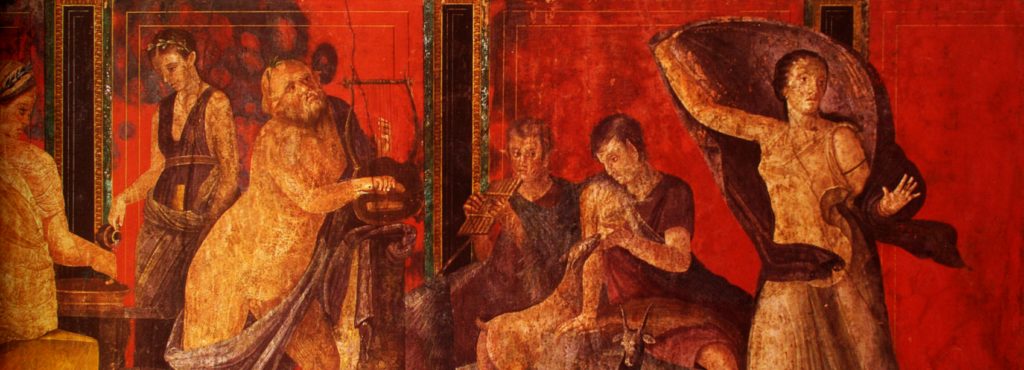
The ceremonies performed on these occasions are thus described. They commenced at midnight. The father of the family would rise at that hour and go out at the door of the house, making certain gesticulations and signals with his hands, which were supposed to have the effect of keeping the specters away. He then washed his hands three times in pure spring water. Then he filled his mouth with a certain kind of black beans for which ghosts were supposed to have some particular fondness. Being thus provided he would walk along, taking the beans out of his mouth as he walked, and throwing them behind him. The specters were supposed to gather up these beans as he threw them down. He must, however, by no means look round to see them. He then, after speaking certain mysterious and cabalistic words, washed his hands again, and then making a frightful noise by striking brass basins together, he shouted out nine times, “Ghosts of this house begone!” This was supposed effectually to drive the specters away—an opinion which was always abundantly confirmed by the fact; for on looking round after this vociferated adjuration, the man always found that the specters were gone!
When by these ceremonies, or ceremonies such as these, Romulus had appeased the spirit of his brother, and those of the guardians of his childhood, his mind became more composed, and he turned his attention once more toward the building of the city. The party of Remus now, of course, since it was deprived of its head, no longer maintained itself, but was gradually broken up and merged in the general mass. Romulus became the sole leader of the enterprise, and immediately turned his attention to the measures to be adopted for a more complete and effectual organization of the community over which he found himself presiding.
In respect to Remus, it ought perhaps to be added, that after his death a story was circulated in Rome that it was a man named Celer and not Romulus, that killed him. This story has not, however, been generally believed. It has been thought more probable that Romulus himself, or some of his partisans and friends, invented and circulated the story of Celer, in order to screen him in some degree from the reproach of so unnatural a crime as the killing of a brother so near and dear to him as Remus had been;—a brother who had shared his infancy with him, who had slept with him, at the same time, in the arms of his mother, who had floated with him down the Tiber in the same ark, been saved from death by the same miraculous intervention, and through all the years of infancy, childhood, and youth, had been his constant playmate, companion, and friend. The crime was as much more atrocious than any ordinary fratricide, as Remus had been nearer to Romulus than any ordinary brother.

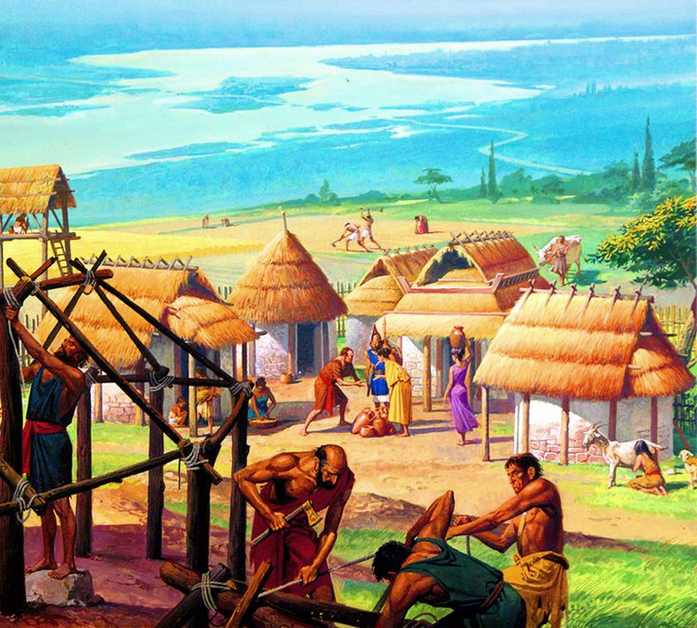

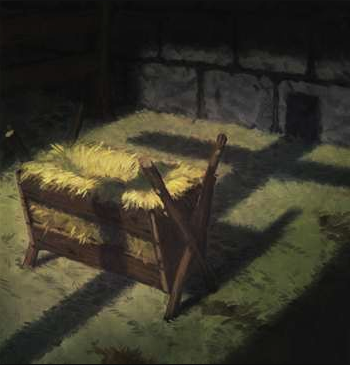
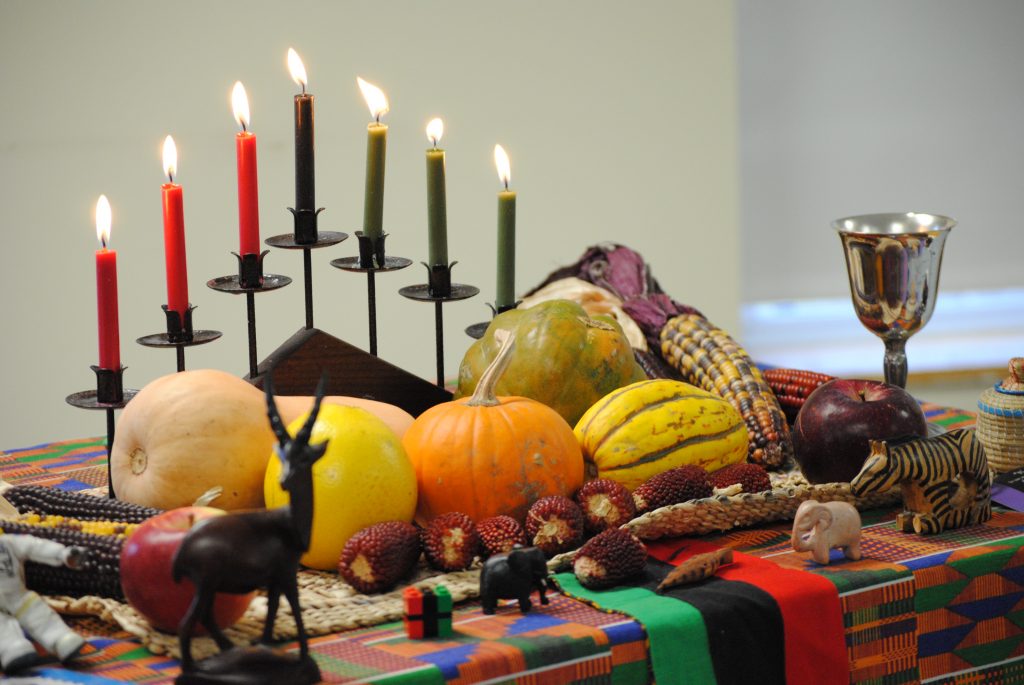





5